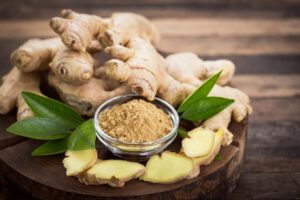
Ginger is a well-known natural treatment for diarrhea. It can help treat some of the causes of diarrhea and relieve gastrointestinal symptoms. Popular preparations that can be used as home remedies include ginger tea and ginger ale.
Fast facts on ginger for diarrhea:
- Ginger is rich in a variety of beneficial plant chemicals called phytochemicals.
- Ginger may also relieve other gastrointestinal problems, such as food poisoning.
- Ginger is unlikely to cause serious side effects.
The relationship between ginger and diarrhea
The anti-diarrhea benefits of ginger likely come from phytochemicals.
Researchers, holistic practitioners, and various doctors have suggested some ways ginger might help with diarrhea. Those include:
- Changing muscle spasms in the lower digestive tract to help the body flush out the source of diarrhea.
- Preventing chills due to illness.
- Changing the behavior of specific neurotransmitters, which are chemicals that help the body send nerve signals.
- Fighting infections associated with diarrhea.
- Treating chronic causes of diarrhea and stomach pain, such as ulcers and acid reflux.
How much ginger to eat per day
The best way to take in ginger is in its natural form. Taking processed ginger supplements may pose a danger as some supplements may be contaminated, inconsistent, or of poor quality.
The United States Food and Drug Administration (FDA) do not approve ginger supplements, and there is no widely accepted daily recommended intake.
However, most sources recommend people consume no more than 4 grams (g) of ginger per day. Pregnant or breast-feeding women should consult a doctor before supplementing their diets with ginger.
Try starting with 1 g or less per day, then gradually raising the dose. Carefully monitor symptoms and check for side effects. As with any supplement, the safest option is to use the lowest effective dose.
So if diarrhea disappears with 0.5 g of ginger, there is no need to increase the dose.
Website: www.medicalnewstoday.com
